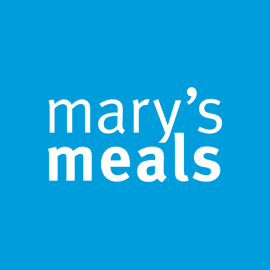Swapping Arms for Farms
Poachers are being rewarded for conserving, rather than killing, wildlife in Zambia with a circular economy initiative that feeds hungry children while incentivizing legitimate livelihoods.
“At first when I started, I used to kill small animals like duikers. With time, I also started to kill the big ones, buffalos and elephants.” Like many in the rural communities near Zambia’s national parks, Standwell used to supplement his livelihood with illegal poaching, risking prison and injury. Today, all of that has changed for Standwell and hundreds of ex-poachers who have turned their lives around thanks to a partnership between Mary’s Meals and COMACO (Community Markets for Conservation) that began back in 2014.
The problem of wildlife crime is acute. In the past 40 years, as a result of poaching, rhinos have been completely wiped out in Zambia and there has been a 90% decline in elephant numbers. Previously, Zambia had one of the highest rhino populations in Africa. COMACO’s view is that the traditional models of wildlife conservation are not working. They believe telling people not to poach doesn’t address the root cause of poaching and other forms of land degradation. Instead of punishing people for poaching, which only exacerbates issues of hunger and poverty when a family member goes to prison, the organization instead has designed a system that rewards people for conserving their natural resources.
Standwell is one of over 1,800 poachers-turned-farmers that COMACO has helped to train, with their crops going to make Yummy Soy (Corn Soya Blend) a nutritious porridge fortified with minerals and vitamins, which is supplied to Mary’s Meals to help feed over 335,143 children. “When COMACO came, I learned more about the effects of illegal poaching. I understood their message. They knew exactly what I was facing. I understood what they were saying was true, so I surrendered my gun, went to college and learned new livelihood skills,” says Standwell.
With over 200,000 small-scale farmers (cooperatives and individuals) supplying COMACO, the knowledge that their crops go into the making of Mary’s Meals porridge - often in turn feeding their own children - has also helped grow community support for the school feeding program. Also, because COMACO pay a fair price, farmers are less likely to keep their children out of school to work on the farms.
Female empowerment is also an important part of COMACO’s work, with over half of these farmers being women. To help restore nutrients to the soils, stop degradation, and reduce reliance on harmful and expensive pesticides, COMACO also enables sustainable farming practices, helping to increase yield, without damaging the environment. Standwell explains, “The plant which is being grown is chemical-free. That’s why this product which we produce is bought by COMACO, made into porridge, and sold to Mary’s Meals. This product comes back to our children chemical-free. This means our children are eating food which has no chemicals.
“I want to thank Mary’s Meals for buying what I produce. This porridge makes our children very healthy. I am asking Mary’s Meals to continue to benefit the whole province.”
Just $31.70 feeds a child for a whole school year.
